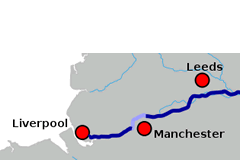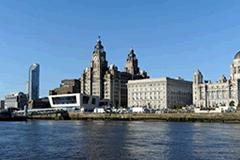Last night over a thousand business leaders packed in to the Winter Gardens for the annual Red Rose Awards to celebrate the success of a diverse and impressive number of companies who have enjoyed a successful twelve months.
The event, hosted by the excellent publication Lancashire Business View, was no doubt a fabulous evening, and one I was really sorry to miss due to commitments today.
As they sat celebrating the wonderful business stories from across the county guests can be forgiven for not giving too much thought to the discussion and debate that I referred to in my blog here last week, whereby cities and city regions are increasingly seen as the future of economic growth in the UK.
So, how should Lancashire respond to the notion of cities exclusively taking the mantle of economic growth hubs, and indeed the idea presented by Evan Davies in his excellent BBC programme ‘Mind the Gap’ that to compete with London a Northern ‘super city’ ought to be created, consisting of Manchester, Liverpool and Leeds.
There is much merit in these three giants working more collaboratively, as I pointed out last week, but it then leaves the question as to how places like Lancashire, Cheshire and Cumbria will be supported.
If national policy continues to drive city hubs as the solution to relative economic decline in the North, then counties can only suffer – unless they create a fresh operating environment themselves.
There has been near irrational resistance from the various components that make up the Red Rose County to accept a hub city or an attack brand that can lead the marketing and business development agenda for Lancashire.
The Local Enterprise Partnership has performed remarkably well in bringing the disparate parts of the area together, but the underlying tensions between Blackburn, Preston and Blackpool still exist.
As the surrounding boroughs of Manchester, Liverpool and Leeds buy in to the inevitability of city hubs being the only way to drive city region wealth, albeit some more enthusiastically than others, Lancashire continues to insist on equal distribution of resource across its vast expanse, therefore diluting the offer that a united Lancashire would offer.
Both the private and public sectors need to address this problem before it’s too late. Ninety nine councils, hundreds of councillors and several Chamber of Commerce organisations representing one county cannot be right. A combined approach to our collective challenge will help enormously, and we’ll be approaching you soon to ask if you’re up for helping Lancashire overcome that challenge.








